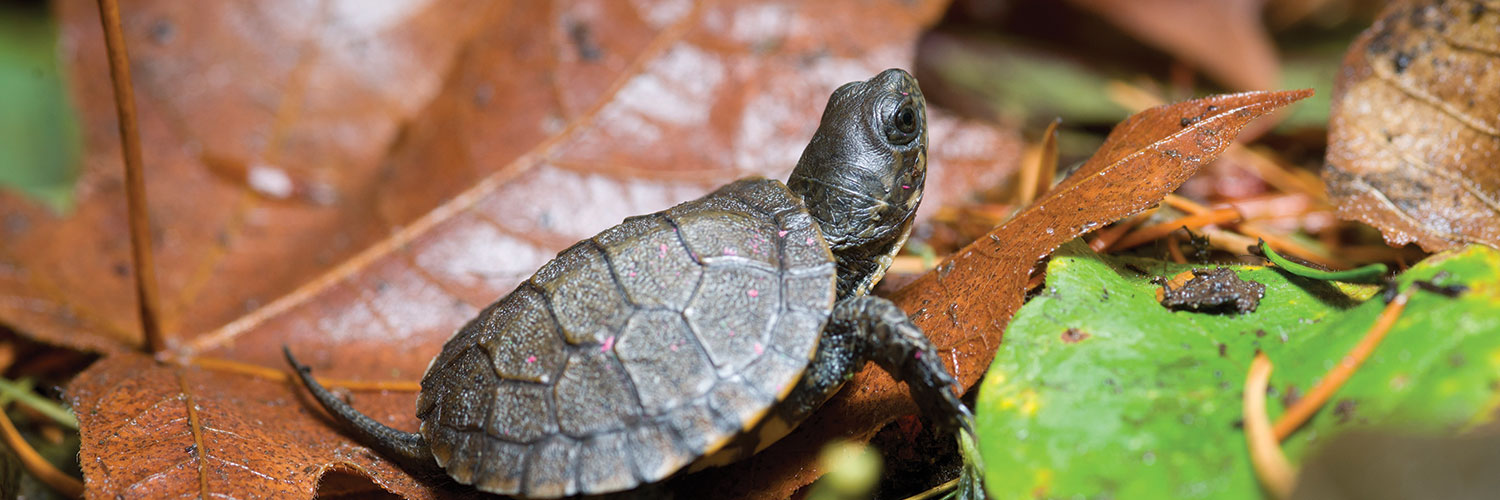The Western Pond Turtle
Actinemys marmorata
The Western Pond Turtle is the West Coast’s only native freshwater turtle species, which is in danger due to many factors, including habitat destruction, fragmentation, and degradation, including deteriorating water quality. They range from Southwestern British Columbia to northwestern Baja California, and a northern and southern species have been proposed, with San Francisco being the division between the two types. Human activity and development has severely impacted Western Pond turtle habitats; they live in ponds, marshes, streams, and slow moving rivers, often basking on logs and mud banks.
With a shell length of only four to nine inches, Western Pond turtle hatchlings are only the size of a quarter. Adult turtles come in various shades of browns and hints of olive green, have marbled patterns on their shell and skin, and can live for up to forty years in the wild. They feed on a wide variety of animals, including aquatic insects, grasshoppers, flies, beetles, fish, worms, crustaceans, and amphibians as well as water plants.
Other threats to the Western Pond Turtle include disease and non-native species such as large mouthed bass, bullfrog, and the red-eared slider. They are also vulnerable to climate change, as the gender of offspring is determined by the incubation temperatures of the eggs (a trait found in many other turtles and some other reptiles).
U.S. Fish & Wildlife consider the Western pond turtle a species of special concern (currently under status review), and they are protected under California state law. The northern populations have virtually disappeared in some ranges. According to the Center for Biological Diversity in 2014, “Pond turtles from Southern California are in precipitous decline…”
By restoring riparian habitats in the Sisquoc River, Santa Ynez River, and the upper Piru and Santa Clara rivers, Channel Islands Restoration is working to provide healthier habitats for our native turtle to thrive in.
Many organizations are working to save the Western Pond Turtle, including the Association of Zoos and Aquariums (AZA) Western Pond Turtle, which has developed a full spectrum Saving Animals From Extinction (SAFE) program for the Western Pond Turtle, including projects on conservation, public engagement, Unidentified Shell Disease, population assessment, habitat mapping, and long term sustainability.



